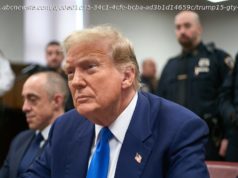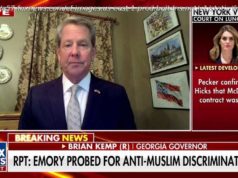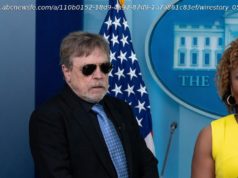“A perfect storm where all the Russian efforts are coming together.”
The revelations that Trump campaign manager Paul Manafort has been indicted on criminal charges — and foreign policy adviser George Papadopoulos has confessed to a crime — are simultaneously both shocking and unsurprising.
Shocking because it means there was a strikingly high degree of alleged criminality so close to the president of the United States. Unsurprising because of everything we know about Donald Trump and the way he chose to run his campaign — and the way he is running the White House.
Trump ran a chaotic and disorganized campaign, as one might expect from a complete political novice. That, combined with unorthodox policies that included attacks on traditional allies and kind words about traditional US adversaries, led most mainstream Republican operatives and experts to shy away — attracting a cast of inexperienced, shady, and/or pro-Russian characters like Manafort and Papadopoulos.
The basic set-up created an irresistible target for Russian intelligence, one that they repeatedly attempted to penetrate. We know, Trump’s protestations aside, that they managed to successfully make contact with several Trump campaign officials, ranging from junior figures like Papadopoulos to at least one member of the inner circle, Donald Trump Jr.
Russia made so many different efforts to reach out to the Trump team, through so many different avenues, that the Mueller team has a lot of leads to follow as they try to piece together the nature of Trump’s true ties to the Kremlin. The Manafort and Papadopoulos cases are the thinnest tip of the iceberg — which means there are a lot more investigative threads to pull on.
“I’m not surprised at all that the investigation that is tracking down good-faith leads in the case is going to have a very sort of comprehensive style of approach,” Andrew Wright, a professor at Savannah Law School, says. “It’s going to look a lot like a complex criminal organization that’s transnational, like, say, a Colombian cocaine cartel.”
The notion of Russia attempting to influence American elections isn’t particularly new. In 1960 and 1968, Soviet spies reached out to Democratic candidates to offer assistance in the form of friendly propaganda or secret funding. Both of the candidates in question, Adlai Stevenson and Hubert Humphrey, turned down their offer (and went on to lose their campaigns).
In 1976, the KGB tried a different tactic, forging FBI documents suggesting that hardline anti-Communist Sen. Scoop Jackson was gay, then sending them off to different newspapers in a bid to derail his campaign. It was a kind of precursor to the weaponization of fake news we saw last cycle, with Russian bots sharing anti-Clinton innuendo on Facebook and Twitter.
The Russian bid to influence the 2016 combined outreach to a potentially friendly campaign and spreading fake news with the theft of Clinton’s private emails. It was a comprehensive campaign, one far more aggressive and far-reaching than its Soviet-era precursors — and it never would have really worked without a campaign like Trump’s to bounce off of.
It’s important to remember that Trump’s mercurial personality and heterodox policy ideas — including repeated promises to make a “deal” with Putin and improve relations with the Russian dictator — had alienated much of the mainstream Republican Party and practically all of its foreign policy establishment. Neoconservatives and the other traditional GOP Russia hawks who staffed the George W. Bush administration and formed the backbone of Mitt Romney’s foreign policy team in 2012 were some of the party’s loudest Never Trumpers.
With the top tier of talent unavailable, Trump had to draw on a series of inexperienced and surprisingly pro-Russian people for political and policy advice.
Manafort, who had been working for pro-Russian Ukrainian leader Viktor Yanukovych in ways both open and allegedly illegal for roughly a decade, wasn’t on any other candidate’s shortlist for campaign manager. There wasn’t huge competition for the policy advice of Papadopoulous, then a 29-year-old who both listed Model UN on his resume and lied about the extent of his involvement in the simulation. Even the Trump advisers with the most impressive-seeming resumes — like Michael Flynn, a former three-star general, and Sen. Jeff Sessions — had unusually close ties to, or warm feelings about, the Kremlin.
This whole dynamic created an opportunity for Putin’s Russia that the Soviets never had. They not only had a candidate who seemed likely to be friendly to the Kremlin if he won, but a series of access points — staff who were either known to them or inexperienced — that they tried to work with.
“[Once] Trump people are being positive toward Russia or even helping out,” says John Sipher, who spent most of his 30 years at the CIA working on Russia issues, “you almost have a perfect storm where all the Russian efforts are coming together, and they’re seeing they have enough material to put together a comprehensive program.”
Individuals who appear to have Kremlin ties tried tactic after tactic to gain access to Trump’s camp. Donald Trump Jr. was offered Russian assistance through Emin Agalarov, a Russian pop star and friend of Donald Trump Jr.’s. Guccifer 2.0, a persona used by the group of Russian hackers involved in the Clinton email theft, exchanged private Twitter messages with Trump political adviser Roger Stone. Papadopoulos met with a London-based professor claiming to have “thousands” of Clinton emails and a woman claiming to be Putin’s niece.
We simply do not know the extent to which this led to actual, intentional collusion between the Trump camp and the Russians, or whether such collusion took place at all. But the extent of the contacts makes it hard to believe, as my colleague Ezra Klein points out, that there wasn’t any. And we know, for a fact, that the Trump camp didn’t tell them to knock it off — as the Stevenson and Humphrey camps did before them.
In fact, we know that roughly the opposite happened.
Trump Jr. took the meeting with Agalarov’s representative, responding to the offer of Russian dirt on Clinton with the immortal line “if it’s what you say I love it.” When Papadopoulos was offered “thousands” of Clinton emails stolen by Russia from his professor friend, he didn’t report it to the FBI — he went around telling top Trump campaign officials that he wanted to set up an official visit to Russia. “Have been receiving a lot of calls over the last month about Putin wanting to host him and the team when the time is right,” he said in one email .
Again, we don’t yet know the extent to which Trump Jr. and Papadopoulos were speaking for the overall campaign. But the whole thing was so unprofessionally organized that, at the very least, no one was corralling these two young men, both political neophytes. Even if they weren’t authorized to talk to the Russians, it would have been reasonable for the Russians to think that they were.
Based on what we know, then, it’s fair to say that the Trump campaign engaged in a kind of collusion-by-omission: By refusing to tell the Russians to knock it off, and even encouraging them at times, Trump and his team essentially encouraged Putin to intensify his attempts to interfere with the US election.
The flipside of all this is that Mueller has a tremendous amount of different investigative threads to pull on.
Home
United States
USA — mix Trump's shady and inept campaign team was a perfect target for Putin's...






